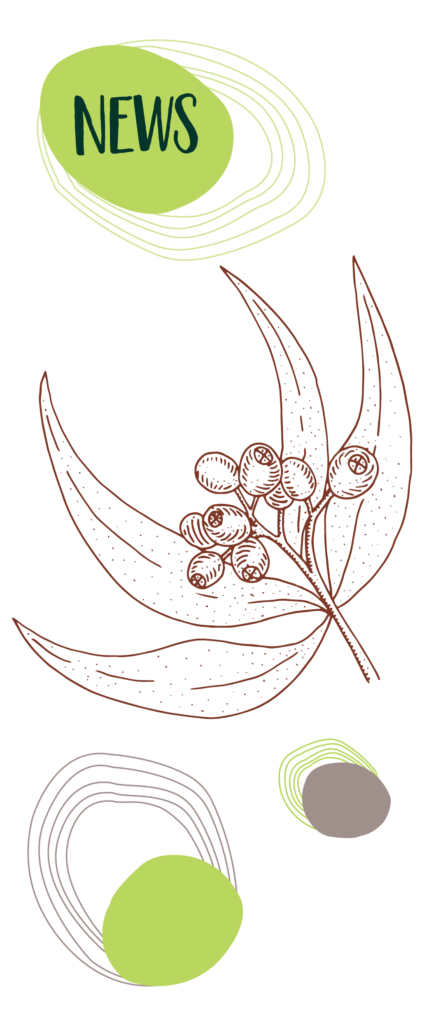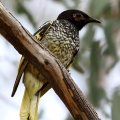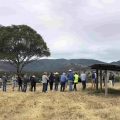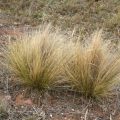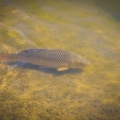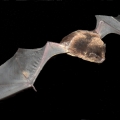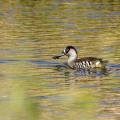Native Bees As Resilient Pollinators!
Published 21st April 2023. Written by Maddison O’Brien
Australia has over 2,000 species of native bees ranging from the spectacularly large 24 mm yellow and black carpenter bees down to the tiny 2 mm Quasihesma bees. Native bees are vital in pollinating Australia’s magnificent and unique wildflowers and native plants. Native bees have been observed as critical agricultural allies too. Species such as leafcutter bees, mason bees and alkali bees can be efficient pollinators of crops such as lucerne and apples. In Australia, the blue-banded and stingless bees show potential as specialist pollinators, visiting a wide array of native and non-native plants.
With the ongoing varroa mite outbreak threatening European honeybee populations and the crops they pollinate, a new appreciation is building for Native Bees who appear to be immune to the parasite. Interestingly there is already an emerging native bee industry; businesses out of NSW and QLD are demonstrating that native stingless bees can be kept and used for crop pollination services. Successful pollination of crops of macadamias, lychee, watermelon, tomatoes, avocados and others has been achieved by this emerging native bee enterprise.
It was reported by ABC last month that nine more cases of the Varroa mite were detected in NSW. This was a discouraging announcement sending ripples through the beekeeping community. This uncertainty highlights the importance of supporting native bee populations for the ecosystem services they provide. It may seem obvious, but native bees rely on native plants to flourish. Even if some species have more flexible diets than others, we must build up habitat and nectar sources for a diverse array of Australian insects.
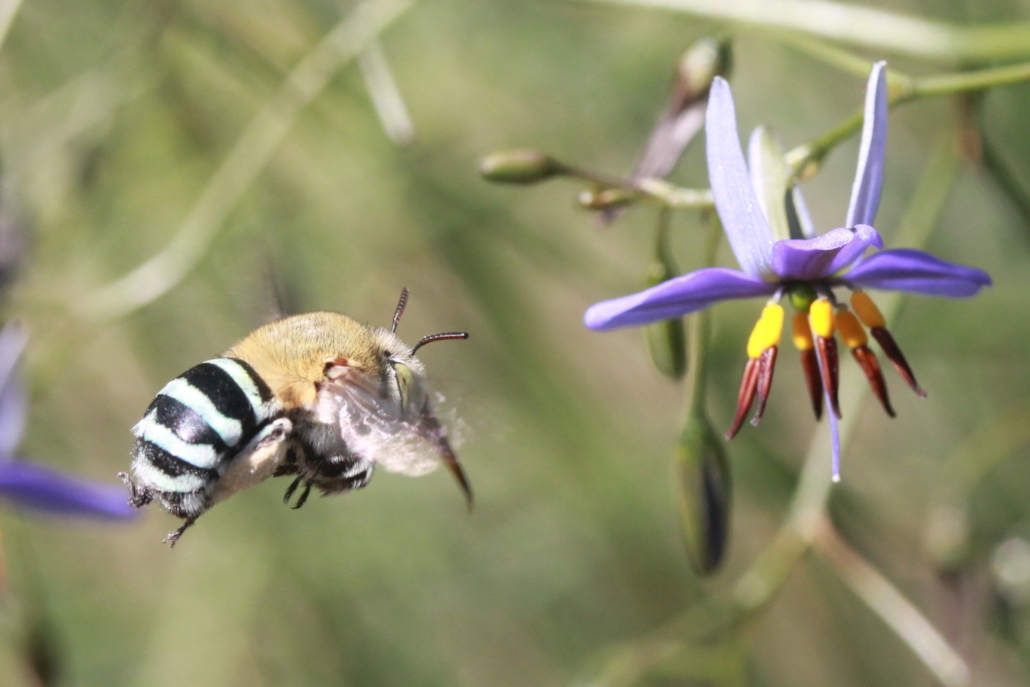
A Blue Banded Bee going in to sip the nectar of a Chocolate Lily
Some plants are strongly preferred by native bees, including native peas and daisies, eucalyptus, banksia, Melaleuca, Leptospermum, Acacia and Bursaria species, and some introduced garden plants like salvia and lavender. Incorporating these into the landscape is a straightforward way to attract and support native bee populations.
Bees, like any insect, are sensitive to pesticides and herbicides, and when using these tools, one should remember the potential impacts on pollinator species. Researchers have found that herbicides and pesticides may impact bees in subtle ways — for example, impeding the growth of bee larvae, diminishing bees’ navigational skills, altering their foraging behaviour, or even disrupting their microbiome.
Australian Native bees are a valuable part of the ecosystems where we live and grow food. They’re an exciting bunch and exhibit diverse social and solitary behaviours vastly different to European Honey bees. Their fascinating habits and usefulness cannot be understated. In a time of global insect population decline, it’s encouraging to see landholders and scientists growing to appreciate native bees and the importance of sustaining their natural food sources. With a bit of help from humans actively working to conserve and regenerate habitat, native bee populations can thrive!

